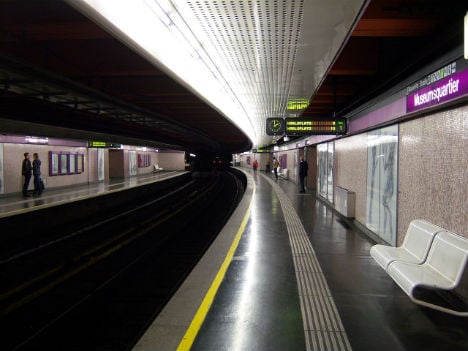Shortly after 7am on Sunday morning the 30-year-old man fell from the station platform and into the path of an oncoming train. However, he fell on his back and his body landed exactly in the gap between the tracks – so the train was able to pass above him without touching him.
Police were able to see exactly what happened after examining footage from a surveillance camera at the station.
“There was no one else around. The man stumbled, toppled over and fell onto the tracks – bang in the middle. A train was just coming into the platform and although the driver slammed on the emergency brakes it was too late – the train went right over him. We then saw how he climbed out from behind the train – unharmed,” police spokesman Thomas Keiblinger told Radio Wien.
There is a distance of 40cm between the track and the floor in the Vienna U-Bahn lines – so the man was very lucky that his body fit into this space. “This is not a stunt that should be imitated,” a spokeswoman for the Wiener Linien transport company said. “Not every person has the same build.”
She added that if another passenger observes someone falling onto the tracks they should immediately pull the ‘Not-Stop’ (emergency stop) lever on the platform. If the train is able to stop in time then the unlucky person has time to roll into an ‘escape niche’ which is next to the tracks, just under the platform.
After he had climbed to safety the 30-year-old man was taken to hospital but found to be completely unharmed. The driver of the train was in shock.



 Please whitelist us to continue reading.
Please whitelist us to continue reading.
Member comments